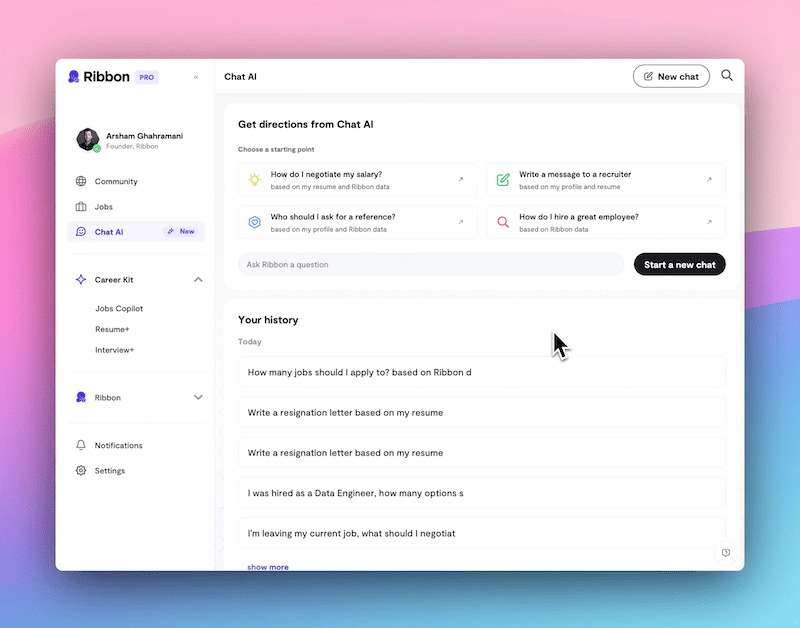Interview Assessments: a Pratical Guide

Typical Q&A interview formats might not always give you a complete picture of your candidates' potential.
This is where interview assessments come in.
This guide will walk you through different types of interview assessments, and provide practical examples
What Are Interview Assessments?
Interview assessments are practical exercices used to evaluate candidates beyond the traditional question-and-answer format of a typical interview. They are usually used in prescreening sessions to gauge the skills, knowledge, and overall suitability of a candidate for a specific role.
They are usually designed to minimize bias and make sure that every candidate is evaluated on a fair playing field. By incorporating assessments, you ensure that the hiring process is not just based on gut feelings but on measurable, job-relevant data.
These assessments also help gauge cultural fit by understanding a candidate’s values, behaviors, and approach to work. For example, personality tests can offer insights into how well a candidate will align with your team's dynamics.
What Are the Different Types of Interview Assessments?

There are several types of interview assessments that can help you evaluate different aspects of a candidate’s suitability for a role. Each type has its specific purpose, and combining multiple assessments can provide a well-rounded view of the candidate's capabilities.
1. Aptitude Tests
Aptitude tests are designed to evaluate a candidate’s ability to think critically and solve problems. These tests often include logical reasoning, numerical skills, and abstract thinking. They help you understand how quickly a candidate can learn new information and adapt to new challenges, making them particularly useful for roles that require quick problem-solving or analytical thinking.
2. Technical Skills Tests
Technical skills tests are used to evaluate a candidate’s proficiency in specific skills relevant to the role. For example, if you’re hiring a software developer, a coding test can help you assess their programming abilities. These assessments provide a practical way to measure the candidate’s technical competence and ensure they have the skills needed to perform the job effectively.
3. Personality Assessments
Personality assessments help you understand a candidate’s traits, motivations, and work style. These tests can reveal how well a candidate will fit into your company culture and how they might interact with your team. They are particularly useful for roles where interpersonal skills and cultural alignment are key to success.
4. Situational Judgment Tests (SJTs)
Situational judgment tests present candidates with hypothetical scenarios that they might face on the job. The candidate is asked to choose how they would respond in each scenario. This type of assessment helps you evaluate decision-making skills, judgment, and the candidate’s ability to handle challenging situations effectively.
5. Behavioral Interviews
Behavioral interviews focus on exploring past experiences to predict future behavior. By asking candidates to describe situations they’ve handled in the past, you can assess their problem-solving abilities, teamwork, leadership, and other relevant skills. This type of assessment is particularly effective for understanding how candidates have applied their skills in real-world situations.
6. Work Sample Tests
Work sample tests require candidates to complete tasks or assignments that are similar to those they would perform on the job. This gives you a direct look at how the candidate approaches and completes relevant tasks. Work sample tests are highly effective in assessing hands-on skills and job performance.
7. Assessment Centers
Assessment centers involve multiple assessment methods, such as group exercises, role-playing, and interviews, conducted in a group setting. This approach allows you to evaluate a candidate’s performance in various scenarios and gain insights into their teamwork, communication, and leadership abilities.
Examples of Interview Assessments to Use During Interviews

To help you put these interview assessments into practice, here are concrete examples of how you can use each type to evaluate candidates more effectively.
1. Aptitude Test Questions
For an aptitude test, you could use questions like:
- "A train leaves City A at 6:00 AM, traveling at 60 mph. At the same time, a car leaves City B, 120 miles away, traveling at 40 mph. At what time will they meet?"
- Logical reasoning questions like pattern identification or “What comes next in this sequence?” can help gauge analytical thinking.
2. Technical Skills Test Script
If you’re hiring a software developer, you could ask them to complete a coding challenge using a language relevant to your needs. For example:
- "Write a function that takes an array of integers and returns the second largest number. Please explain your approach before coding."
- Another option could be to provide a bug-ridden piece of code and ask the candidate to debug it.
3. Personality Assessment Example
For a personality assessment, you might use standardized tests like the Myers-Briggs Type Indicator (MBTI) or the DiSC profile. You could also ask questions like:
- "What kind of work environment do you thrive in?"
- "How do you typically handle conflict in a team setting?"
4. Situational Judgment Test Script
A situational judgment test could involve presenting a hypothetical scenario, such as:
- "You’re leading a project, and a key team member is falling behind on their tasks. How would you handle this situation?"
- Provide multiple options for the candidate to choose from, such as delegating, offering support, or escalating the issue.
5. Behavioral Interview Questions
Behavioral interviews rely on questions like:
- "Tell me about a time when you faced a difficult deadline. How did you manage it?"
- "Describe a situation where you had to work with someone whose style was very different from yours. How did you handle it?"
These questions allow you to understand how candidates have approached real-life challenges and how they might perform in similar situations at your company.
6. Work Sample Test Example
A work sample test could involve a hands-on task, such as:
- For a content writer, you could ask them to draft a short blog post on a topic relevant to your business.
- For a sales role, you might ask the candidate to create a mock sales pitch for one of your products.
7. Assessment Center Activities
In an assessment center setting, you could use exercises like:
- Role-Playing: Simulate a client meeting where the candidate has to respond to customer questions or complaints.
- Group Discussion: Give candidates a hypothetical business problem and observe how they interact, contribute, and collaborate in a group setting.
Automated Interview Assessments: Noota
.webp)
Managing interview assessments manually can be time-consuming and prone to errors, especially if you're conducting interviews for multiple roles. This is where Noota can help by automating and streamlining the entire process :
- Streamline Your Interview Questions : with Noota, you can streamline your interview questions and ensure consistency throughout the interview process. The platform provides reminders about the essential questions that need to be asked, which keeps you on track and ensures you don’t miss any critical topics.
- Record and Transcribe Answers Automatically : Note-taking can be challenging during interviews, especially when you want to maintain eye contact and engage actively with the candidate. Noota solves this issue by automatically recording and transcribing interviews in real-time.
- Generate Structured Summaries : After the interview, Noota can generate structured summaries that highlight key takeaways from the conversation. Instead of having to sift through pages of notes or listen to the entire recording again, you get a concise overview of the candidate's strengths, areas for improvement, and other essential details.
- Seamless Team Collaboration : Noota’s platform makes it easy to share interview insights with your hiring team. You can quickly distribute structured summaries and transcripts, ensuring that everyone involved in the decision-making process has access to the same information.
Want to transform your interview process into a more streamlined, efficient, and fair approach ? Try Noota for free.
Leverage your Interview Data
AI interview notes, scorecard, follow-up, ATS integration, and more...
Related articles

Forget note-taking and
try Noota now
FAQ
In the first case, you can directly activate recording as soon as you join a videoconference.
In the second case, you can add a bot to your videoconference, which will record everything.
Noota also enables you to translate your files into over 30 languages.

.svg)
.svg)

.webp)

.png)


.svg)
